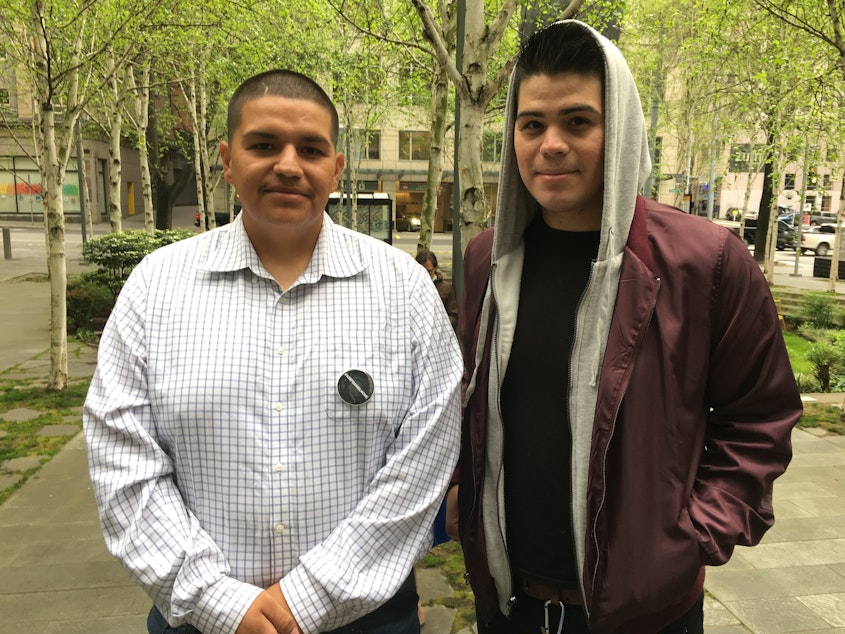Feds can’t say this ‘dreamer’ is a gang member — for now

It’s been more than a year since immigration officials raided a Seattle-area home and detained Daniel Ramirez Medina, a 23-year-old who was a recipient of the federal ‘dreamer’ program.
Held for 47 days at Tacoma’s Northwest Detention Center, Ramirez’s arrest was the first of its kind under the Trump administration.
Read more: To stay in America, he must convince a judge his tattoo isn’t gang related
Now, after months of lawyers fighting the initial arrest and its consequences in court, a federal judge has temporarily blocked the federal government from trying to take away Ramirez' DACA status – and also temporarily blocked the feds from asserting Ramirez has gang affiliations.
Ramirez had no previous criminal history and had been twice-authorized to live and work in the U.S. after extensive background checks. Nevertheless, since his arrest, the federal government has repeatedly asserted that Ramirez is a gang member—and thus not eligible for his ‘dreamer’ status—because of statements allegedly made in detention and a tattoo with the name of his hometown on his forearm.
Sponsored
Ramirez was brought to the U.S. as a 10-year-old from Mexico in 2003. Under the Obama-era DACA program – Deferred Action for Childhood Arrivals — he was able to continue to live and work in the U.S.
That changed one night in February 2017, when immigration officials raided Ramirez's home and detained him. Officials confiscated Ramirez's work permit and placed him in a detention center gang unit after spotting his tattoo, which also included a nautical star.
Lawyers for Ramirez challenged his arrest in both federal and immigration courts, and after seven weeks, he was released on bond. Since then, the federal government has been trying to take away his DACA status and deport him to Mexico.
KUOW immigration reporter Liz Jones has followed Ramirez's case from the beginning and reported on the gang affiliation debate at a hearing last month.
Judge Ricardo S. Martinez wrote the court order blocking the government from taking away Ramirez’s DACA status.
Sponsored
“Most troubling to the court, is the continued assertion that Mr. Ramirez is gang-affiliated, despite providing no evidence specific to Mr. Ramirez,” Judge Martinez wrote in his opinion. “The immigration judge, after reviewing all evidence submitted by respondent, [found] that Mr. Ramirez was credible, and that he was not in a gang or associated with one.”
Luis Cortes, one of the attorneys for Ramirez and himself a DACA recipient, said that the injunction means the government's gang allegation won't continue to haunt Ramirez when he renews his DACA status this month.
"This ruling forces the government to keep their promise to dreamers and not use any kind of pretext to break that promise," Cortes said.

